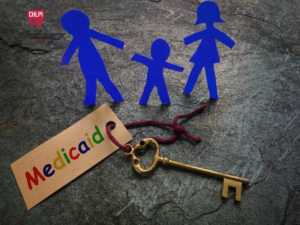Insights on new program can advance health equity, improve access to care, help speed adoption of similar policies nationwide.
Today, the Health Law Lab at the Center for Health Law and Policy Innovation (CHLPI) of Harvard Law School, in partnership with California’s Medically Supportive Food & Nutrition Steering Committee, released new case studies illuminating efforts in California to expand access to and coverage of nutrition interventions and other social services for Medicaid enrollees. The case study series documents operational and logistical hurdles and bolsters efforts to integrate nutrition interventions and other health-related social needs into Medicaid services nationwide.
The case studies, titled Building Partnerships to Advance Nutrition in California’s CalAIM Waiver, are available here:
- Alameda County Recipe4Health and Alameda Alliance for Health
- Project Open Hand and Contra Costa Health Services
- Project Angel Food and L.A. Care Health Plan
Food insecurity is associated with a wide range of negative health outcomes, and poor diet is the leading risk factor for death in the US. More than a million Americans die from diet-related chronic health conditions annually, which disproportionately affect people from systemically underserved communities, yet our healthcare system is often not equipped to respond to these challenges.
Medically Supportive Food and Nutrition (MSF&N) refers to a spectrum of interventions – including medically tailored meals, medically supportive meals, medically tailored groceries, medically supportive groceries, produce prescriptions, and food pharmacies – designed to prevent, reverse, and manage chronic health conditions such as diabetes, cardiovascular disease, kidney disease, certain cancers, and HIV. Research shows these interventions are cost-effective responses to improve health outcomes, reduce food insecurity, and address deep health disparities. However, sustainable funding has been a top barrier to providing widespread access to these services.
On January 1, 2022, California launched its five-year Medicaid waiver, called California Advancing and Innovating Medi-Cal (CalAIM), which can build statewide access for MSF&N and other health-related social services (like housing assistance). California calls these services Community Supports. Through the Community Supports program, nutrition services can be provided to Medicaid enrollees with diet-related conditions through partnerships between California’s managed care plans and community-based organizations (CBOs).
“California’s waiver presents a unique opportunity to address the social determinants of health, including food access and nutrition, and improve health equity for people living with chronic health conditions,” said Erika Hanson, Clinical Instructor for the Health Law Lab and CHLPI. “Our case study series highlights how providing Medicaid coverage for health-related social needs services–usually not covered by Medicaid–is well within reach for the rest of the country. The challenges associated with integrating social services into health care financing are surmountable, and the potential impact is great.”
To develop the case study series, the Health Law Lab conducted interviews with managed care plans and CBOs providing MSF&N services through the Community Supports program, focusing on the details of setting up and implementing a Community Supports program, including formation of the partnership, characteristics of the relevant services provided to Medicaid enrollees, credentialing, the referral process, billing and reimbursement, and reflections on the interviewees’ personal experiences and opinions of the program and its impact.
“CalAIM Community Supports provide an opportunity to change the landscape of healthcare in California but it requires strong partnerships between managed care plans and community based organizations. By learning from early adopters we are poised to fully realize this opportunity,” said Katie Ettman, Food and Agriculture Policy Manager at SPUR, co-convenor of the Medically Supportive Food & Nutrition Steering Committee.
Participating partnerships include L.A. Care Health Plan and Project Angel Food; Contra Costa Health Care Services and Project Open Hand; and Alameda Alliance for Health and Alameda County Recipe4Health. The nutrition services provided by the partnerships include medically tailored meals, medically supportive meals, medically tailored groceries, medically supportive groceries, produce prescriptions, food pharmacies, and behavioral, cooking and nutrition education.
The case study series is made possible through the support of the Kaiser Permanente National Community Benefit Fund at the East Bay Community Foundation. The Health Law Lab will release similar case studies for two additional partnerships in the coming year.


Health Law & Policy, Commentary
Day One Executive Orders: How Will They Impact Health Care Access? – Health Care in Motion
January 23, 2025